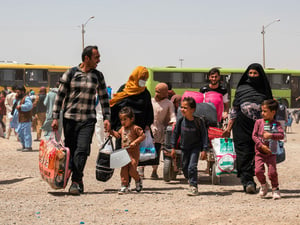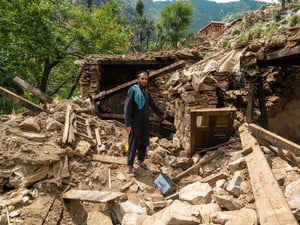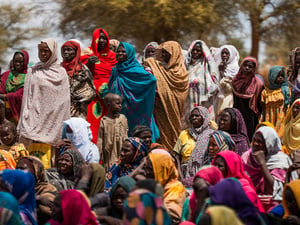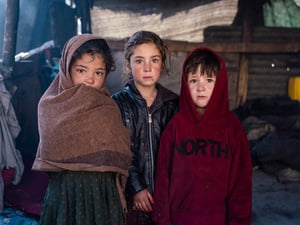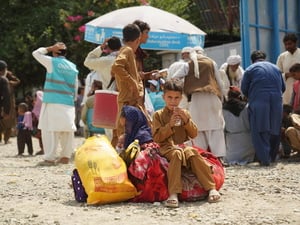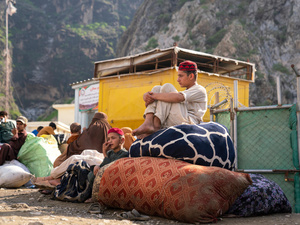Afghanistan: returns information campaign in north-west
Afghanistan: returns information campaign in north-west
An effort to give thousands of internally displaced persons (IDPs) and refugees first-hand information on conditions in Afghanistan's north-western Faryab Province is underway with the arrival in Maimana yesterday of 16 IDP and refugee representatives for a week-long go-and-see mission. The delegation, representing more than 15,000 displaced persons and thousands of refugees living in southern Pakistan's Balochistan Province who fled ethnic tension and outbreaks of violence in late 2001 and early 2002 plan to meet with provincial and local officials, commanders, recent returnees and other members of minority communities.
The recent commitment by regional power broker General Ahmed Rashid Dostum before Afghanistan's Constitutional Loya Jirga to facilitate the return of internally displaced people to the north is expected to give a big boost to the effort of the Afghan government, UNHCR and other agencies to help resolve the plight of displaced persons from the region.
Earlier this week, UNHCR's Chief of Mission Filippo Grandi travelled to Maimana and Mazar-i-Sharif to encourage northern leaders to facilitate the return of tens of thousands of displaced persons who fled the region. He also met with General Dostum's aide, Sayed Noorullah, who confirmed Dostum's commitment to help ending Afghanistan's IDP problem.
The return of tens of thousands of displaced persons to the Northwest is hampered by ongoing security problems facing civilians living in the area, particularly Pashtuns.
This week's trip, organised by the Afghan government and the UN refugee agency, has brought together leaders from the Shadayee IDP encampment near Herat, and displaced persons residing elsewhere in the west. Kandahar Province's IDP communities are represented by 10 persons from Zhare Dasht camp.
The IDP mission will be dividing into five groups to ensure that they bring back a broad impression from Faryab Province's various districts. Over the next month we plan to organise a series of visits by displaced persons to Jowzjan and Sar-i-Pul provinces in order to try to give more IDPs an impression of life in their home regions and to allow regional leaders and local commanders a chance to hear the concerns of local residents who were forced to flee.
In order to help areas of north-western Afghanistan to absorb returning refugees and displaced persons, UNHCR is continuing to support various projects in the shelter, water, irrigation and infrastructure sectors.
Among the planned programmes to help boost the interdependency among majority and minority communities are co-existence initiatives such as irrigation systems for use by clusters of villages which are expected to form a shura or council to manage the resource. UNHCR also provides shelter assistance to needy returnees, supports community projects for the cleaning of karez - water supply channels - rehabilitates access roads and builds culverts and bridges in some areas.
UNHCR, the International Organisation for Migration and other partner agencies have helped more than 400,000 IDPs return to their homes over the last two years, while more than 700,000 went back spontaneously or opted to integrate into their host communities. Afghanistan still shelters some 190,000 IDPs, down from an estimated 1.3 million in 2001.

